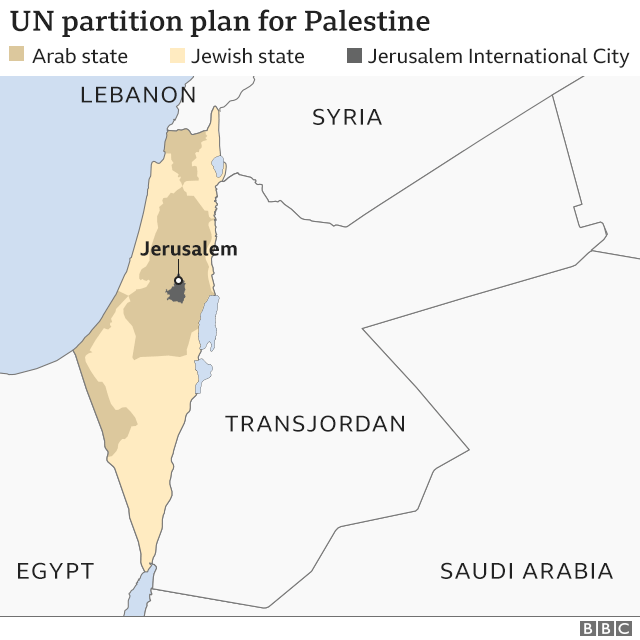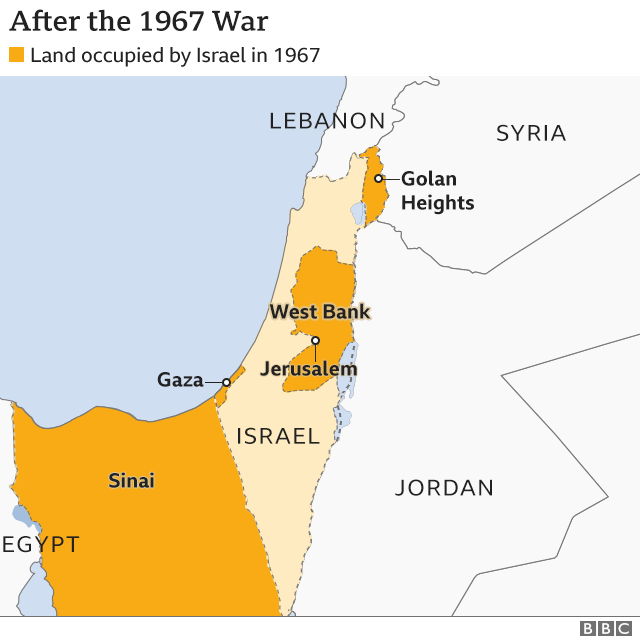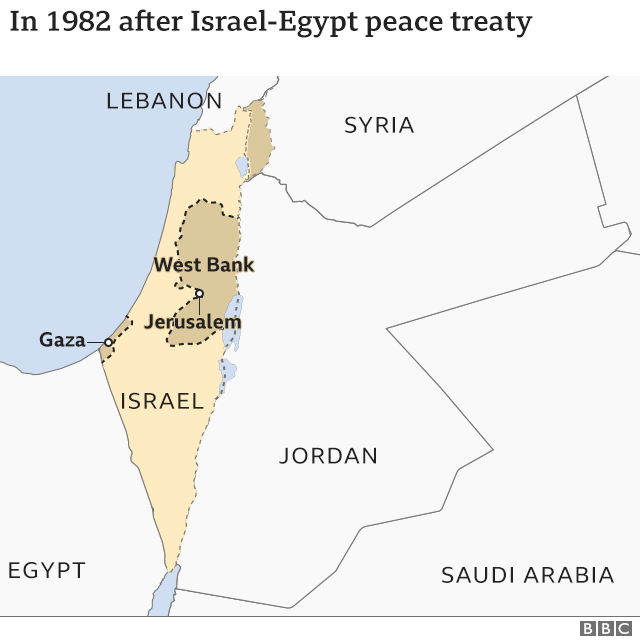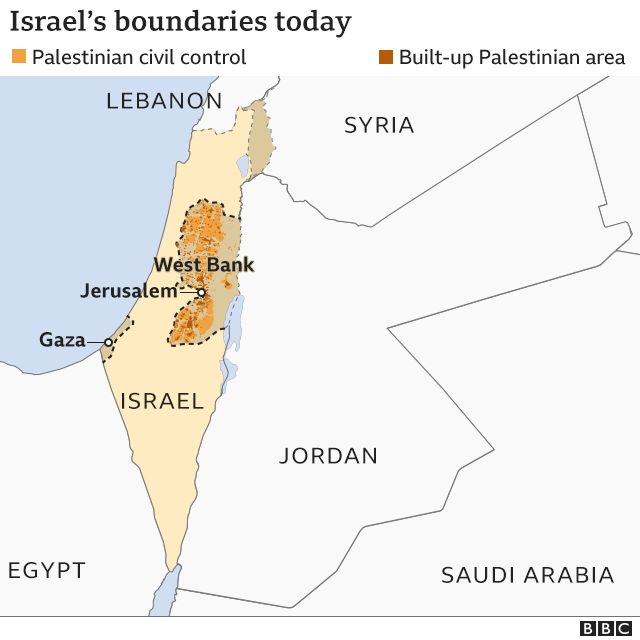
Rockets began raining down on Israel from Gaza after months of escalating violence in the Israeli-Palestinian conflict. Hamas launched over 5,000 rockets, making this a grave and tragic chapter in the ongoing conflict.
Over 200 Israelis and 232 Palestinians lost their lives & the West Bank, occupied by Israel since the 1967 Arab-Israeli conflict, saw a high number of casualties. Hamas sent militants across the border through various means like sea, air & land. The international community responded to this crisis by calling a meeting of the United Nations Security Council on October 8th.
Now, the point of discussion is how the Israeli military and intelligence seemed unprepared for this serious security failure. What is the entire issue? How are the borders of Palestine & Israel defined? Let's deal with all such questions in this blog.
What is Hamas?
Hamas is a Palestinian group in charge of the Gaza Strip. They don't like Israel and have fought many times with them since taking control of Gaza in 2007. In between those big fights, they've launched lots of rockets at Israel, hurting people and doing other bad things. Israel has also attacked them with planes many times. They and Egypt have stopped goods from going into Gaza since 2007, saying it's for their safety. Many countries, including Israel, the United States, the European Union, and the UK, call Hamas a terrorist group. Iran also allegedly funds them with money, weapons, and training.
Israel- Palestine Borders: What is Palestine?
Before moving ahead, here's a key point to remember: A list of Arab nations who have recognized Israel's existence are Egypt, Jordan, UAE, Bahrain, Sudan, Morocco. The land that's now Israel used to be a part of the Ottoman Empire for a long time. But after World War I, when the Ottoman Empire fell apart, it got divided up, and a place called Palestine became a British responsibility. The idea was to make a "home for the Jewish people" there as long as it didn't harm the rights of the other people living there.
1. Over time, more Jewish people moved to Palestine (Jewish minority & Arab majority), especially when things got really bad in Europe with Nazism. This made tensions rise between Jewish and Arab communities.
In 1947, the United Nations suggested splitting Palestine into two countries, one for Jewish people and one for Arabs, with an international city (Jerusalem-Bethlehem area) in the middle (refer the map below). Jewish leaders agreed, but Arab leaders didn't.
So, on May 14, 1948, the Jewish leaders declared Israel's existence when the British left. But the very next day, five Arab countries invaded, leading to a big war. Israel had unclear borders when the war ended in 1949, and its neighbours didn't want to recognize it. Today, the borders are still not completely settled, and Israel controls what is called the Gaza Strip (occupied by Egypt), East Jerusalem and the West Bank (occupied by Jordan).
After more than 70 years, Israel's borders are still kind of a puzzle due to wars, treaties, and occupation.
 Source: BBC
Source: BBC
2. In 1967, a major change happened to Israel's borders during a conflict called the Six-Day War. Israel gained control of the Sinai Peninsula, the Gaza Strip, the West Bank, East Jerusalem, and most of the Syrian Golan Heights (refer the map below).
This effectively made Israel three times larger. They even said that all of Jerusalem was their capital and that the Golan Heights were theirs. But most of the world didn't agree with this. It wasn't until the Trump administration that the United States changed its position to support Israel's claims. However, most of the world still sees East Jerusalem and the Golan Heights as occupied areas.
 Source: BBC
Source: BBC
3. In 1979, Israel's border with Egypt was officially decided for the first time when Egypt became the first Arab country to recognize Israel.
Israel and Egypt signed a treaty, and Israel withdrew from the Sinai Peninsula, finishing in 1982. But even after that, Israel still had the Gaza Strip, East Jerusalem, and the Golan Heights under its control. So, except for the border with Egypt, Israel's borders were pretty much the same as they were after the 1949 armistice agreements.
 Source: BBC
Source: BBC
.4. In 1994, Jordan became the second Arab country to recognize Israel officially, and this move established a clear border between the two nations. Although there isn't a peace treaty between Israel and Lebanon, they generally consider their 1949 armistice line as Israel's unofficial northern border. Israel's border with Syria is still undecided.
When Israel removed its troops and settlers from Gaza in 2005, a de facto border was established, but Gaza and the West Bank are seen as a single occupied area by the UN, and their official borders are yet to be determined. The final shape of the West Bank, Gaza, and East Jerusalem is meant to be decided through negotiations between Israel and the Palestinians living there, but these talks have struggled to find a solution for many decades.
 Source: BBC
Source: BBC
War And Peace
Over the years, Israel and Palestine have faced numerous small and devastating conflicts, leading to the loss of many lives. In 1987, Hamas emerged as a political group with military capabilities, adding complexity to the situation. Two significant uprisings, known as 'intifadas,' especially the second one, profoundly affected Israeli-Palestinian relations, leading to the breakdown of the peace process in the 1990s. The involvement of Hamas in these uprisings further escalated tensions. In the year 2000, a summit hosted by US President Bill Clinton failed to bring about a resolution, worsening the already strained relations.
Israel's response to Hamas attack
Amid escalating violence, Israel has launched airstrikes against Hamas in Gaza, resulting in the deaths of at least 313 Palestinians and over 1,900 injuries. Prime Minister Benjamin Netanyahu has pledged strong retaliation, and the Israeli military has expressed intentions to potentially regain control of Gaza, which it left in 2005. The situation remains tense, and the world watches closely for further developments.
Intelligence gap in Israel
Israel's conflict with Hamas escalated dramatically, with the deadly assault starting on a historically significant day. Despite Israel's robust security measures, it faces unexpected challenges, and the situation has taken a devastating turn. Casualties mount on both sides, tensions rise, and hostages are claimed.
UN Response to Israel Hamas Conflict
The UN Security Council held a private meeting where the US called for strong condemnation of Hamas' attacks but didn't get unanimous agreement. Russia, one of the Council members, clarified that they condemn all attacks on civilians and urged an immediate ceasefire and meaningful negotiations. In the end, no action was taken because all 15 members needed to agree, and they didn't. The situation in the Middle East remains complex and unresolved. UNSC consists of 10 elected members and five permanent members — China, the United States, France, the United Kingdom, and the Russian Federation. All 15 members would have needed to vote unanimously for any statement to emerge following the meeting.
Conclusion
The recent attacks by Hamas on Israel may disrupt the efforts led by the United States to improve relations between Saudi Arabia and Israel. These attacks are seen as a message to Arab nations considering normalizing ties with Israel. Some voices are calling on Arab countries to reconsider their relationships with Israel, arguing that it does not prioritize peace, co-existence, or being a good neighbour.